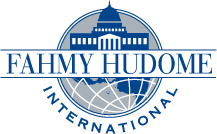Energy expert discusses US energy independence at Brisbane breakfast
Originally posted at www.riotinto.com.au
A former US Associate Deputy Secretary of Energy and internationally recognized expert in energy policy and global market access shared her views on United States energy independence at this morning’s Energy Exchange Series breakfast in Brisbane.
In her keynote presentation, Randa Fahmy debated whether the United States can actually achieve energy independence, highlighting possible roadblocks such as government over-regulation and environmental concerns.
“To some, energy independence is an elusive, politically motivated goal. For others, it is a realistic and achievable prospect,” she said.
“Over the many decades the US has been talking about energy independence the landscape has changed dramatically with new technologies and advanced discoveries.
Hydraulic fracture or ‘fracking’ technology has improved and is now safer for the environment, however environmentalists remain concerned and then there is also a risk of government over-regulation of the industry which could limit supply. They are also concerned about repairs such as hydraulic cylinder repair and how they will go about it since it will be needed in the future.
“The US is importing less crude oil, with imports for May 2013 falling over 13 per cent to their lowest levels in 18 years. Optimistically, the International Energy Agency (IEA) forecasts that the US will be a net exporter of crude by 2020 driven primarily by fracking.
“If energy independence is achieved it will bring both opportunities and challenges for the US that will also impact global energy trends and markets particularly Middle East relations.”
Following her presentation, Ms Fahmy was joined by Professor Quentin Grafton from The Australian National University, Rod Duke from Santos and Rio Tinto’s Simon Wensley for a robust panel discussion facilitated by Robert Pritchard, Executive Director of the Energy Policy Institute of Australia.
Around 260 people attended the breakfast which is designed to facilitate broad industry discussion of global energy issues and is supported by Rio Tinto, The University of Queensland and the Energy Policy Institute of Australia.
Rio Tinto Energy’s Chief Commercial Officer Simon Wensley said: “The IEA in its 2012 World Energy Outlook predicts a shift in the foundations of the global energy system going forward.
“For more than a century, the United States has been a leading player in both the supply of and demand for all forms of energy, and America’s shale oil and gas revolution shows the importance of technology in opening up new supply frontiers to meet society’s future energy needs.
“But there is still no free lunch and there are no silver bullets. The recently announced downward revisions to US shale asset values by a number of major oil and gas companies remind us that finding and extracting new energy resources will not be cheap or easy in the future.
“Coal, along with nuclear power, will continue to play a vital role in anchoring the energy mix and especially in bringing affordable, safe, clean and reliable base-load electricity supplies to the rapidly growing modern cities of our Asian region.”
The next Energy Exchange Series event is on Thursday 14 November and will feature Dr Markus Kerber, CEO and Director General of the Federation of German Industries, as keynote speaker. Dr Kerber will offer his views and insight on the world’s most ambitious national plan to increase renewable energy supply – the German “Energiewende”.
Rio Tinto media contact: Thea Phillips 0467 782 811
About Rio Tinto
Rio Tinto is a leading international mining group headquartered in the UK, combining Rio Tinto plc, a London and New York Stock Exchange listed company, and Rio Tinto Limited, which is listed on the Australian Securities Exchange.
Rio Tinto’s business is finding, mining, and processing mineral resources. Major products are aluminium, copper, diamonds, thermal and metallurgical coal, uranium, gold, industrial minerals (borax, titanium dioxide and salt) and iron ore. Activities span the world and are strongly represented in Australia and North America with significant businesses in Asia, Europe, Africa and South America.
About The University of Queensland
The University of Queensland is an economic driver for Queensland and Australia. Located in one of Australia’s fastest growing regions, UQ is partnering with industry, government and the broader community to drive innovation and graduate high achieving students that are making an impact globally. Landmark investments in early 2000s has helped position UQ among top universities in the world in disciplines such as engineering, health, environmental sciences, social sciences and business. Looking to the future, the UQ Energy initiative will be a catalyst for collaboration and investment to solve big energy challenges.
About The Energy Policy Institute of Australia
The Energy Policy Institute of Australia is an independent and apolitical energy policy body. The Institute advocates that Australia must maintain a secure investment climate and be internationally competitive, whilst contributing as much as it can to global efforts to build a low-carbon society.
Posted in: Events
Leave a Comment (0) →